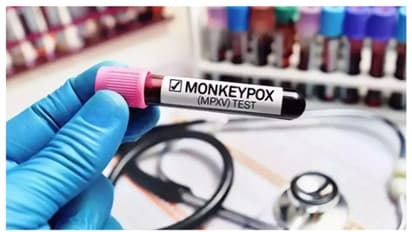'Need for timely reporting, preventive measures': Centre to states, UTs over Mpox; read advisory

Synopsis
The Union Health Ministry has issued an advisory to states and Union Territories to prevent or minimise the risk of Mpox (monkeypox) cases in the country.
The Union Health Ministry on Monday issued a fresh advisory to states, Union territories (UTs) and recommended screening and testing of all suspected Mpox, or monkeypox patients, and isolation of confirmed cases, as well as contact tracing to minimise risk of transmission. As per the advisory, a surveillance strategy has been issued by the National Centre for Disease Control (NCDC) for the states, including a list of laboratories where testing can take place, clinical management protocol and other communication strategies for infection prevention and control.
The government asked them to undertake appropriate activities to make communities aware about the disease, its mode of spread, need for timely reporting, and preventive measures. It has, however, said "it is crucial that any undue panic amongst the masses is prevented".
In its advisory, the Union Health Ministry noted that India has not seen any cases of mpox in the current outbreak. However, state governments have been advised to stay on alert and follow the ministry’s various guidelines on surveillance strategies and setting up of isolation facilities to track and deal with suspect and confirmed cases of the disease, which will need increased resources.
The Health Ministry directive also recommended dissemination of guidelines on "management of monkeypox disease" and of a detailed surveillance strategy for tracking of suspected cases and contact tracing - similar to exhaustive measures at the height of the Covid pandemic. It also offered a list of "laboratories operationalised to undertake testing, clinical management protocol, infection prevention and control practices, as well as risk communication strategies.
The ministry further called for a "review of public health preparedness, particularly at health facility level at state and districts by senior officials". This should include briefing healthcare workers, "especially those working in skin/STD (sexually transmitted disease) clinics, about symptoms, differential diagnoses, and action to be taken following detection of a Mpox case".
In August, the World Health Organisation (WHO) announced mpox (previously known as monkeypox) as a public health emergency of international concern. The decision was made because of the rising spread of mpox to several countries and the emergency of the new strain, clade 1b.
Stay updated with the Breaking News Today and Latest News from across India and around the world. Get real-time updates, in-depth analysis, and comprehensive coverage of India News, World News, Indian Defence News, Kerala News, and Karnataka News. From politics to current affairs, follow every major story as it unfolds. Get real-time updates from IMD on major cities weather forecasts, including Rain alerts, Cyclone warnings, and temperature trends. Download the Asianet News Official App from the Android Play Store and iPhone App Store for accurate and timely news updates anytime, anywhere.